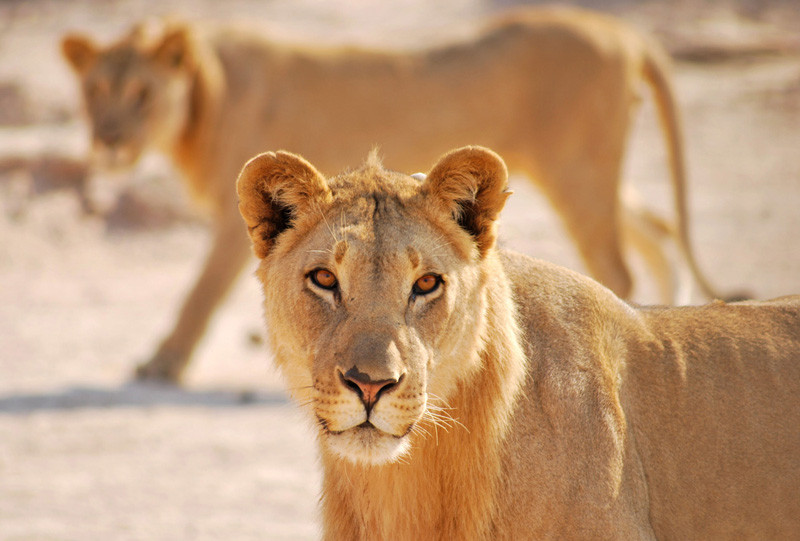Desert Lion Project Desert Lion Project
Overview
The re-establishment of the population of “desert-adapted lions” in the northwest of Namibia, where it is the only increasing wild lion population outside of a National Park, is an African conservation triumph. However, much of the area in which the lions roam, is occupied, albeit sparsely, by pastoralist communities. These communities are not equipped to manage the presence of lions, which can pose a threat to both livestock and people. Balanced against the threat the lions pose, is their value to the functioning of a natural ecosystem, to the safari tourism industry and, thus, to the Community Conservancies where they occur.
The Conservation Travel Foundation has identified the implementation of systems promoting human - livestock - lion co-existence as a conservation and a rural development priority. With the support and participation of Integrated Rural Development and Natural Resources (IRDNC), Save the Rhino Trust (SRT), Desert Lion Project (Dr Flip Stander), and organisations like the Conservation Travel Foundation and Ultimate Safaris, the affected Conservancies are implementing the following measures, under a “Northwest Human - Wildlife Conflict Management Plan”.
- Research and monitoring
Satellite tracking collars are fitted to lions by Dr Stander to track their movements to provide the information on which to design human - wildlife conflict mitigation measures. - Early Warning System
In conjunction with the research collars, SRT and Dr Stander have designed and erected a series of
Early Warning Towers close to livestock enclosures that alert villagers when collared lions approach. - Lion Guardians
Communal Conservancies employ Lion Guardians to patrol their areas, locate potential problem lions and deter them from human - livestock sensitive areas. - Early Warning Rapid Response Units
The Units, which are managed by SRT and are vehicle mobile, react to the presence of lions in sensitive areas and assist the affected communities to deal with potential, or actual, incidents with lions. - Predator-Proof Enclosures
Enclosures (bomas) have been designed that are effective in excluding lion and other large predators (leopard and hyena) when livestock is enclosed at night, especially when used in concert with the Early Warning Towers.
The Conservation Travel Foundation has provided funds to purchase a new research vehicle for the Desert Lion Project and to assist with the implementation of the Early Warning System for rural communities in affected areas – helping to protect the world’s only growing lion population that lives outside of a National Park. It has also assisted the Conservancies and the organisations involved in the Northwest Human - Wildlife Conflict Management Plan by contributing towards :
- the Desert Lion Project through the purchase of satellite tracking collars, lion capture costs and vehicle fuel costs;
- Early Warning Towers and technical equipment;
- vehicle running costs, and salaries for the Early Warning Rapid Response Units.
- the purchase and erection of predator-proof bomas.
Impact
Namibia boasts the greatest wildlife recovery story ever told in Africa and all guests travelling with Ultimate Safaris are already making a positive impact as they embark on their life enriching journey, just by visiting Namibia.
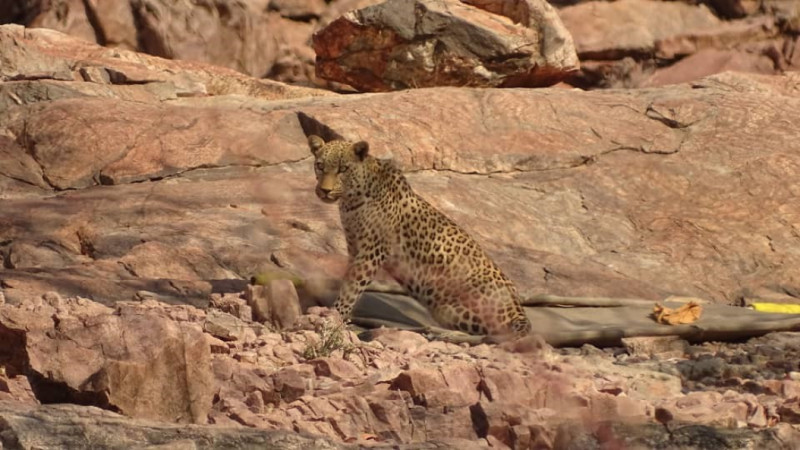
Damaraland Leopards
Research
The Damaraland Leopard Project was launched in early 2020 and it began as a co-ordinated camera trap study of leopard activity in the area. As a result of the work done by the Conservation Travel Foundation, and the support provided by our partners at Wildlife Protection Solutions, it has now become a full-scale research project.
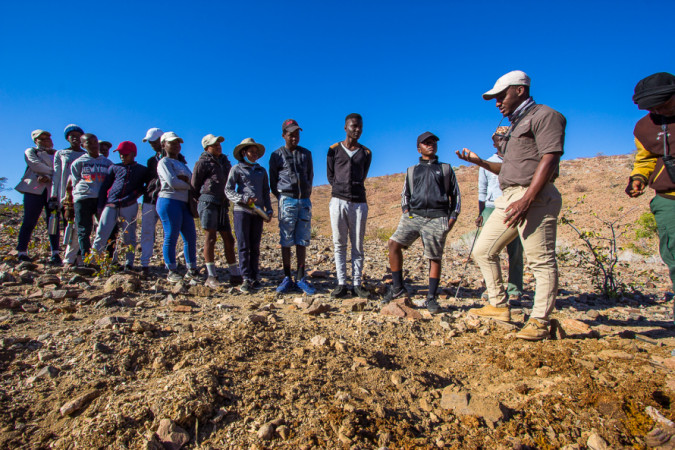
YOUNG DEFENDERS
YOUNG DEFENDERS
YOUNG DEFENDERS program embraces the ever-growing desire of families to allow their children a true wilderness experience, while at the same time allowing them to learn about conservation and to be a part of those efforts.
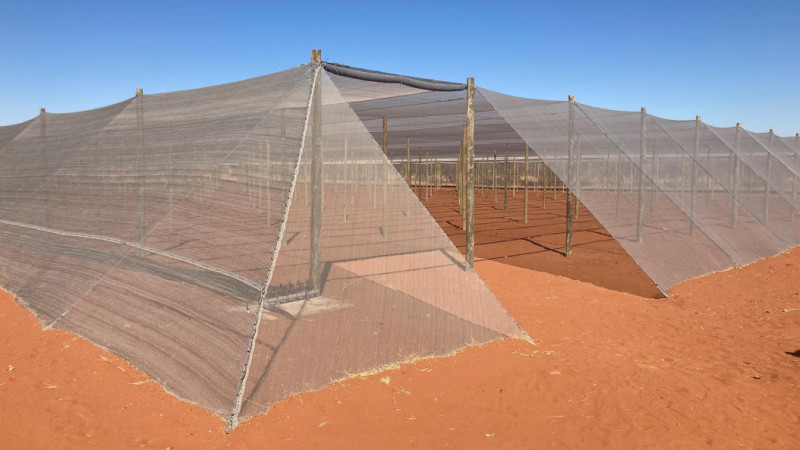
//Huab Food Security
//Huab Conservancy
As part of our continued impact investment into the //Huab Conservancy, we have created 1 hectare of shaded and watered agricultural land, a large chicken coop, storage facilities, and a cool room.

Scholarship Program
Social Responsibility Investments
Ultimate Safaris and the Conservation Travel Foundation have been working to support the Grootberg Primary School for over a decade.
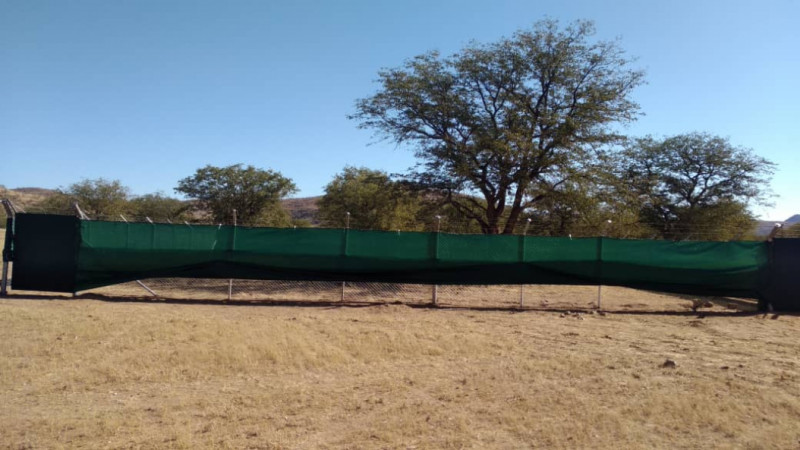
Predator Proof Kraals
Human Wildlife Conflict
Namibia has faced extremely arid conditions in the North West for several years, and this drought situation has inevitably increased competition for resources and added to the pressure of human lion conflict in the area.
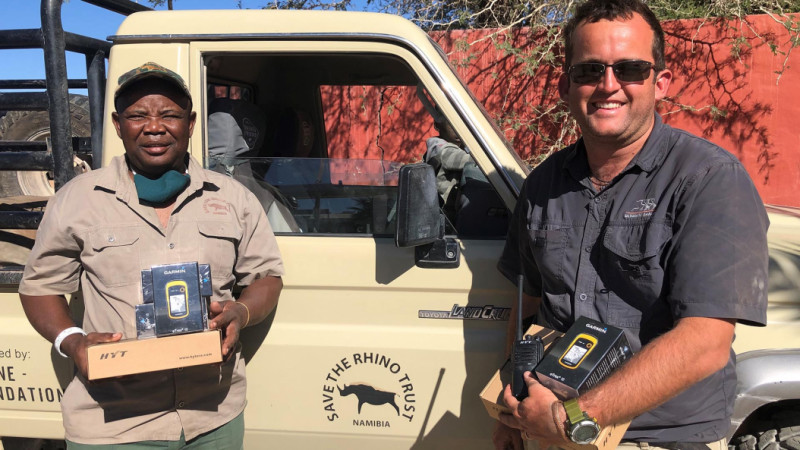
Radio Communication
Doro !Nawas Conservancy
The Conservation Travel Foundation has erected two VHF radio transmitters in the heart of Damaraland, one in each of the //Huab and Doro !Nawas Conservancies.
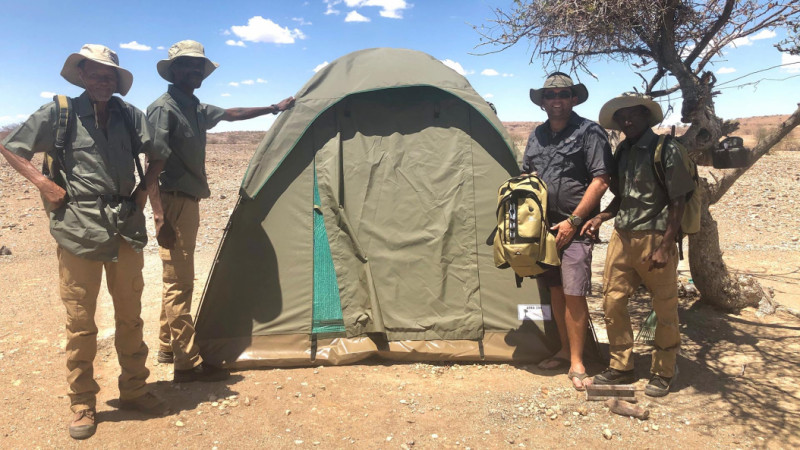
Rhino Ranger Accommodation
//Huab Conservancy
Rhino Rangers in Namibia fulfil a crucial function in terms of monitoring rhino and curbing poaching, but they endure extreme conditions whilst fulfilling their roles.
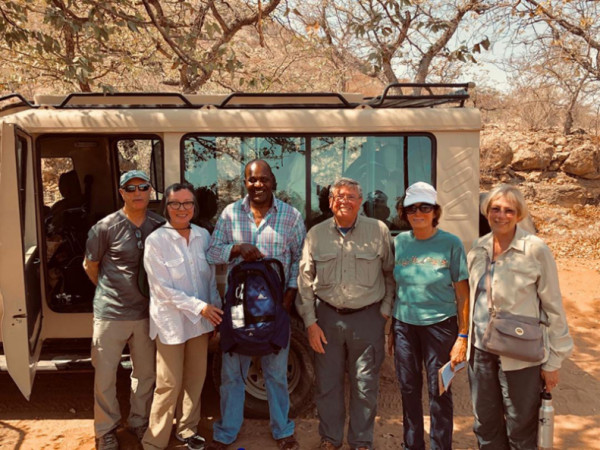
Pack for Conservation
Funding And Support Partners
The Conservation Travel Foundation works closely with Save the Rhino Trust to conserve Namibia’s desert-adapted black rhino. A major threat to rhino is poaching, and the Rhino Ranger programme was designed specifically to increase patrols and monitoring of Namibia’s rhino.

Grootberg Primary School
Social Responsibility Investments
Grootberg Primary School is a small, rural school in the Erwee Village, located in the Khoadi Hoas Conservancy. Th
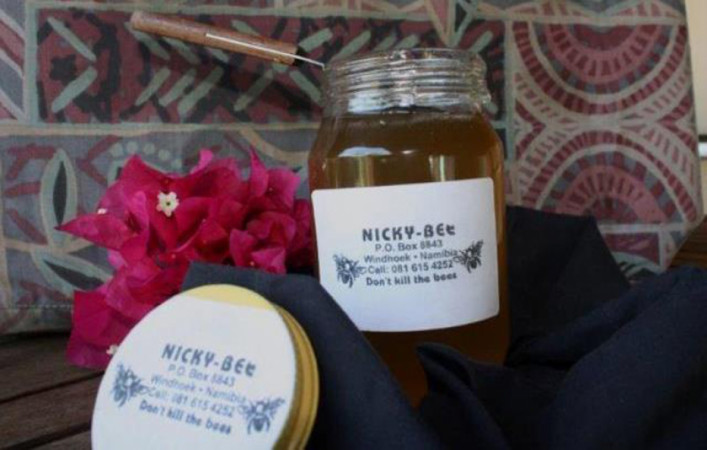
Nicky Bee Farm
Social Responsibility Investments
Nicklaas Eksteen, is well-known in Windhoek as the “bee charmer”. He learnt the skills from his grandfather, and his dream was to have his own apiary and to sell honey with his own brand name.
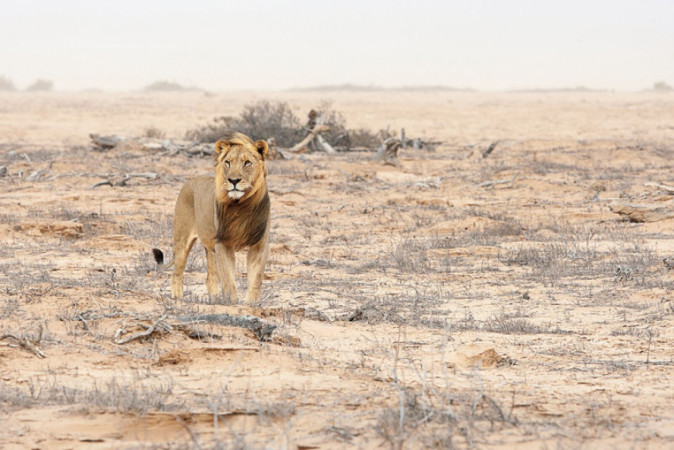
Lionscape Coalition
Funding And Support Partners
In March, 2019, the Lion Recovery Fund formed a new initiative - the Lionscape Coalition. This allows Africa’s top tourism operators to take a lead in supporting on-the-ground conservation work and to encourage their visitors to support efforts to secure the future of wild lions.
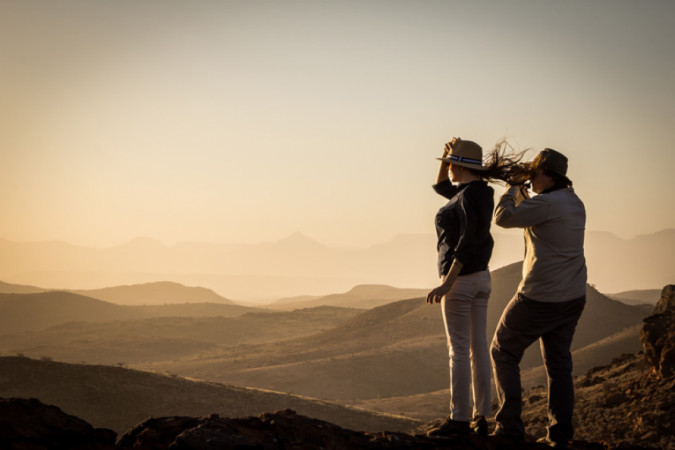
//Huab Under Canvas
//Huab Conservancy
Ultimate Safaris was approached in 2016 to consider investing in the //Huab Conservancy which, on account of its remote location, had been overlooked for tourism development.
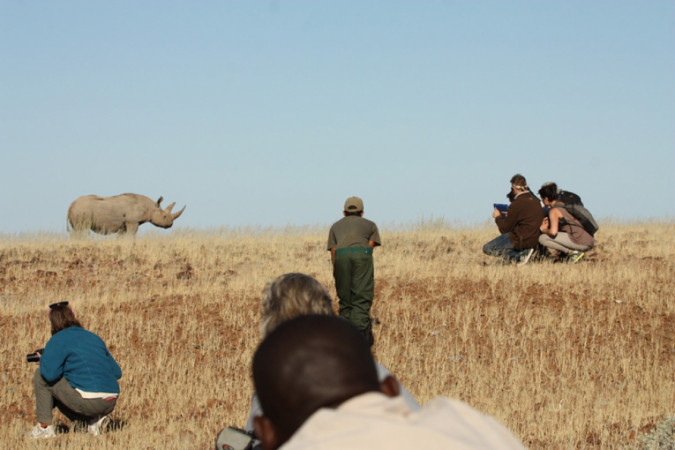
Rhino Awareness Campaign
Save the Rhino Trust
The Conservation Travel Foundation is a key sponsor in the annual Kunene Rhino Awareness Campaign, which emphasizes the importance of rhino to rural communities.
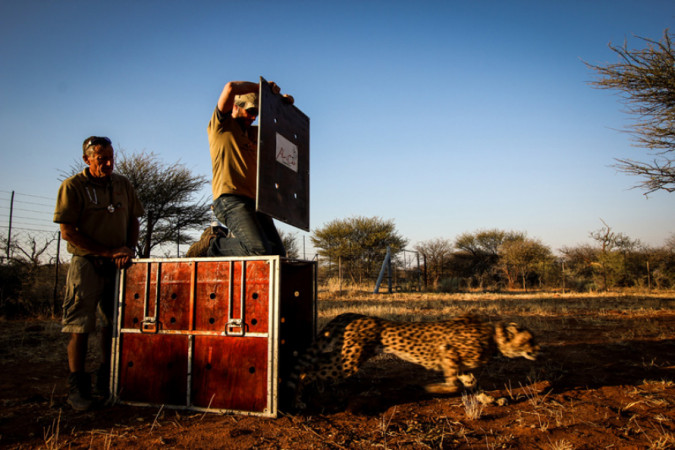
AfriCat Foundation
AfriCat
The Conservation Travel Foundation has long supported the AfriCat Foundation (www.africat.org), with funds generated through the Conservation Travel Safaris run by Ultimate Safaris.
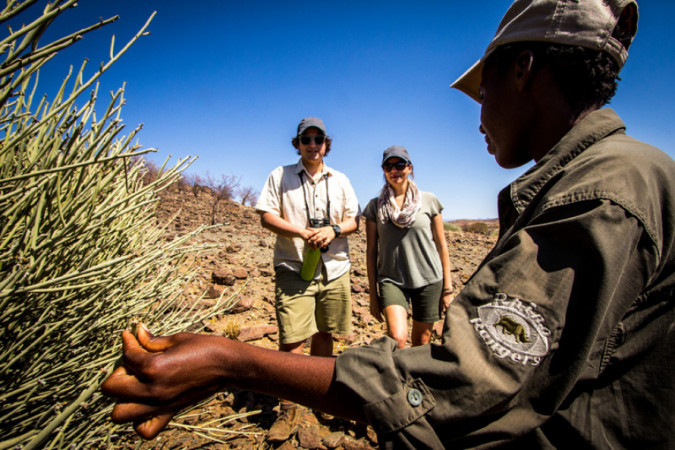
Rhino Rangers
//Huab Conservancy
The Conservation Travel Foundation provides financial and operational support for five //Huab Rhino Rangers who patrol the area, and protect and monitor the rhino population.
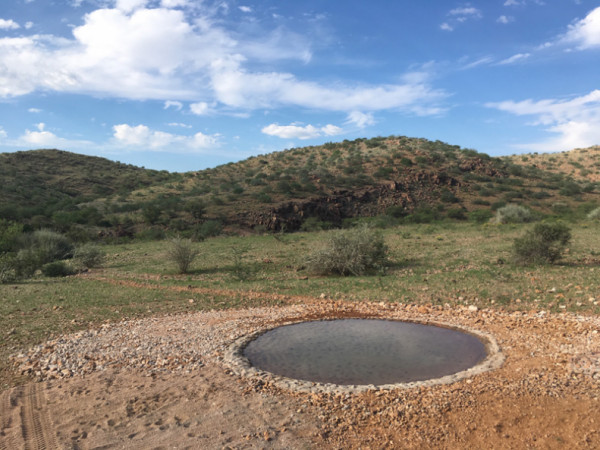
Wildlife Water
//Huab Conservancy
The wildlife populations in the //Huab Conservancy, including rhino, live in a hyper-arid environment, where natural spring surface water is extremely limited and rivers are erratic and ephemeral.
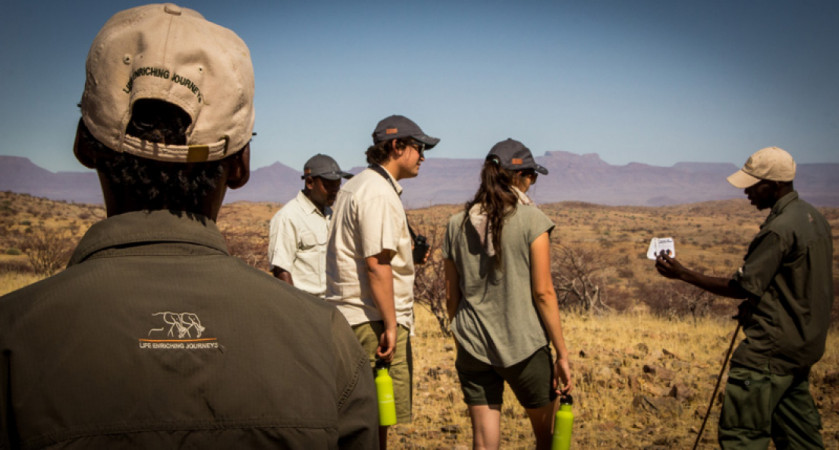
Wildlife Credits
Funding And Support Partners
In an effort to place a pragmatic value on wildlife, both ecological and economic, the Wildlife Credits Initiative was formed by a number of local and international NGOs, with support from the Conservation Travel Foundation.
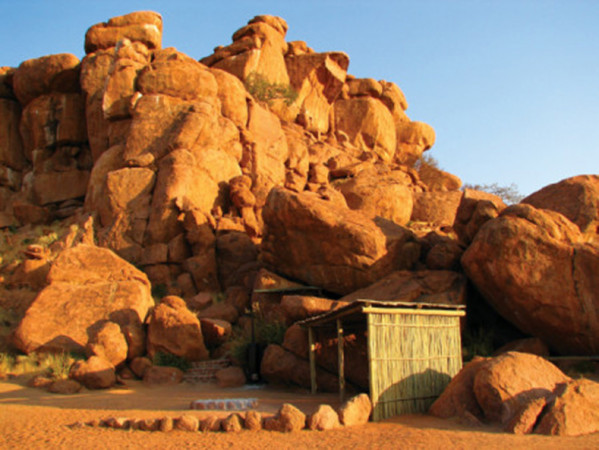
Granietkop Campsite
Doro !Nawas Conservancy
Tourism is a primary economic enterprise option for the Conservancies to exploit, and while leases for the establishment of small, high-end lodges and camps are a key element within that option, so is the provision of facilities for self-drive and lower paying tourists - such as rustic campsites.
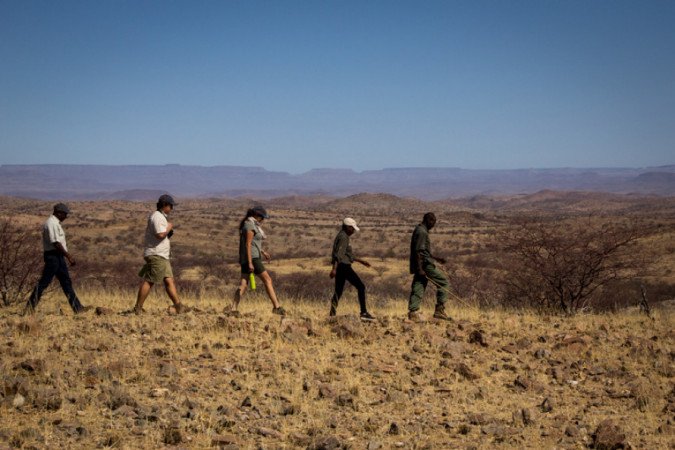
Rhino Rangers
Doro !Nawas Conservancy
The Doro !Nawas Conservancy is home to a number of Namibia’s desert-adapted black rhino. Since 2020, the Conservation Travel Foundation has supported Doro !Nawas Rhino Rangers.
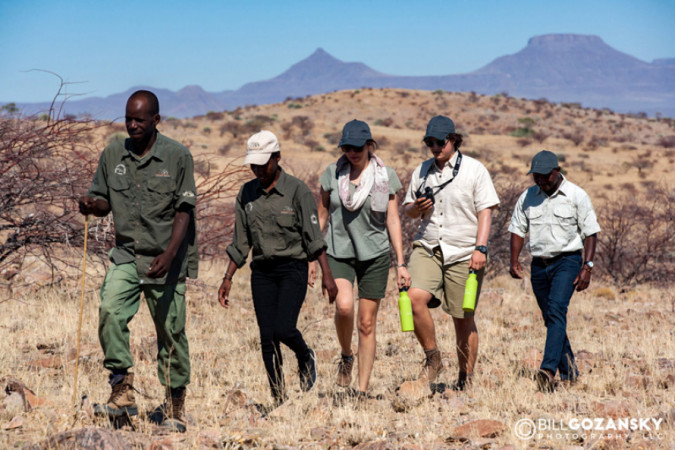
Camp Onduli
Doro !Nawas Conservancy
In 2018 Ultimate Safaris entered into a Joint Venture Agreement with the Doro !Nawas Conservancy to develop a 12 bed camp within the Conservancy, under a similar agreement to that with the //Huab Conservancy.
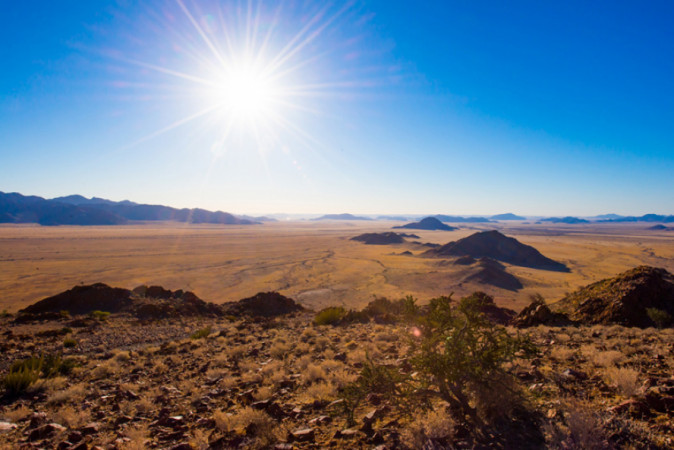
Reclaiming nature
Namib Tsaris Conservancy
Ultimate Safaris operates two safari ventures on the private Namib Tsaris Conservancy, namely The Nest @ Sossus and Camp Sossus. The conservation levies paid to the Conservancy help repay the costs of the rehabilitation of the land after years of inappropriate stock farming.
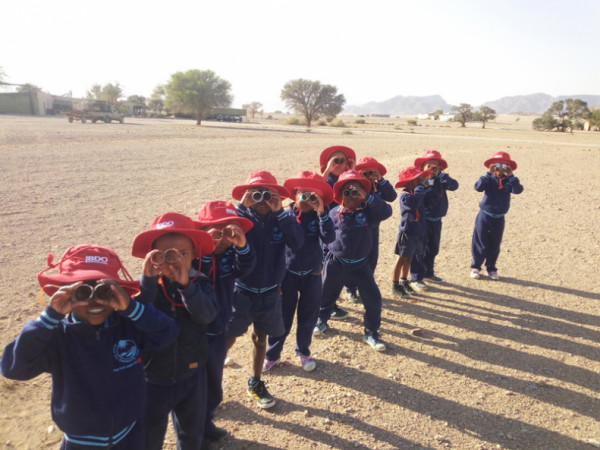
Little Bugs
Social Responsibility Investments
Little Bugs (www.litle-bugs.org) is a free Early Childhood Development Centre and lower primary school, set up by the Namib Sky Foundation, located near Sossusvlei and the Namib Tsaris Conservancy in south-central Namibia.
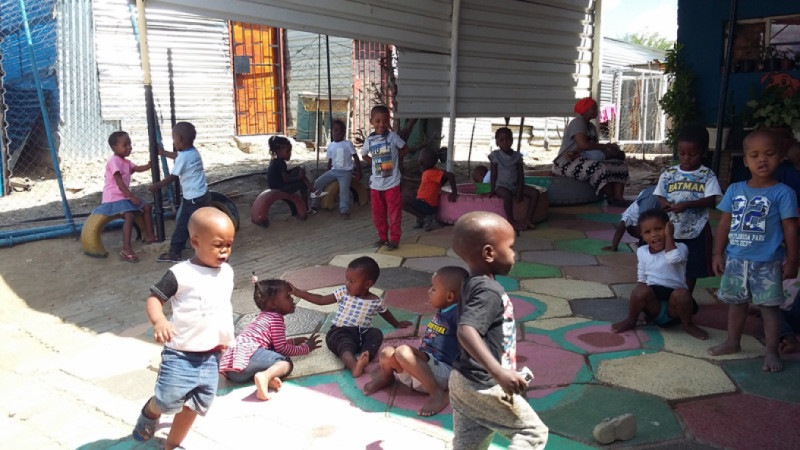
Bright Star
Social Responsibility Investments
Bright Star is an informal orphanage in one of the lower income township suburbs of Windhoek, driven by some extraordinary women.
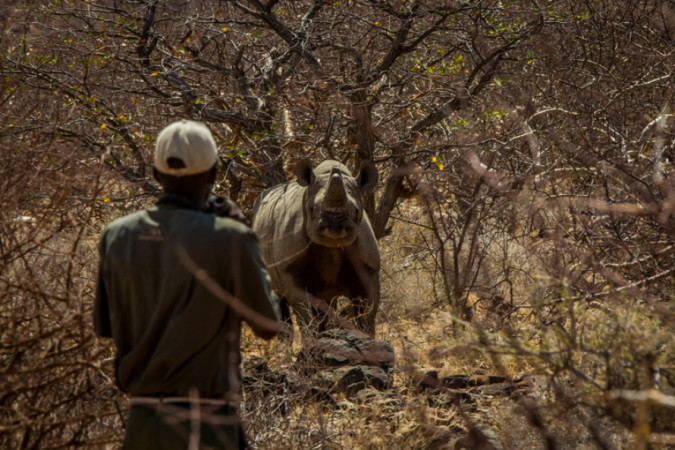
Rhino Ranger Programme
Save the Rhino Trust
Save the Rhino Trust Namibia has worked tirelessly over many years to conserve and protect the desert-adapted black rhino of the Kunene and Erongo regions.
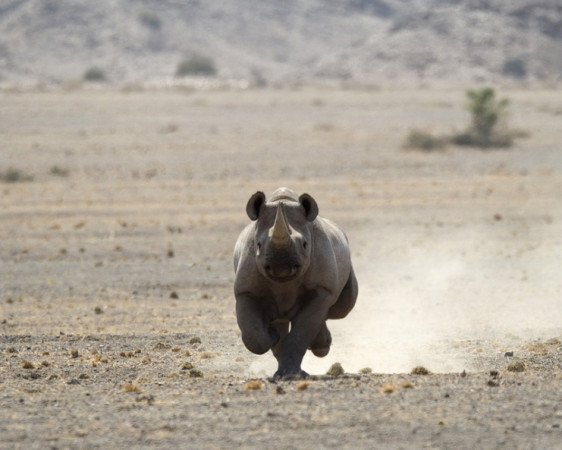
Rapid Response Fund
Ministry Of Environment And Tourism
The Ministry of Environment and Tourism (MET) have run a successful black rhino translocation and re-stocking scheme with private farmers and communal conservancies for a number of years.
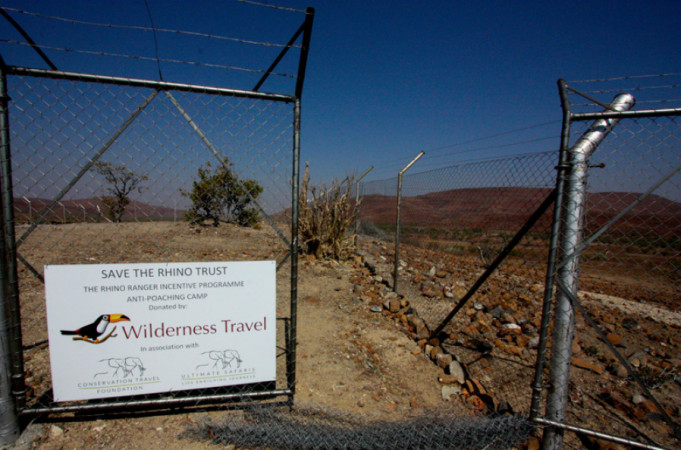
Rhino Anti-Poaching Camp
Save the Rhino Trust
The Conservation Travel Foundation provided funds for SRT to construct a Rhino Anti-Poaching Unit Camp in the area of prime rhino habitat, to help counter the threat of rhino poaching in the Kunene Region.
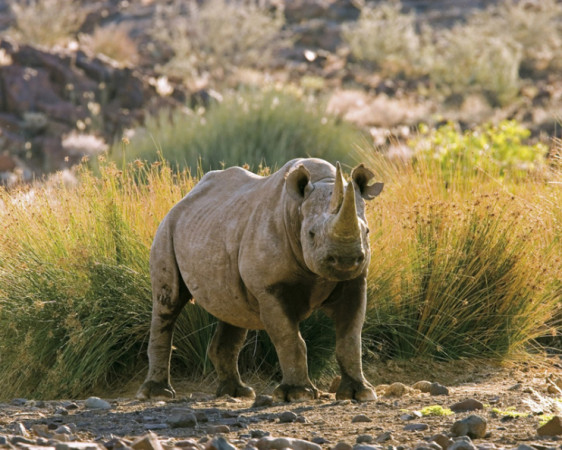
Ongoing ‘unassigned’ support
Save the Rhino Trust
The Conservation Travel Foundation also supports SRT with regular contributions that are not assigned to any particular project, but which allow SRT to allocate the funds to meet unspecified operational requirements that arise, or are not covered by other ring-fenced funds.
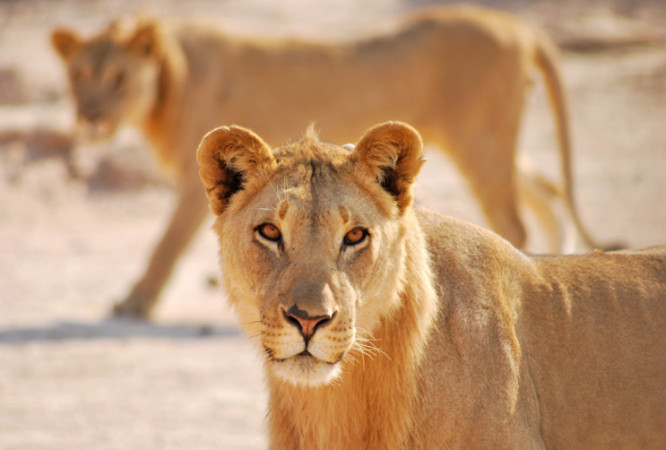
Desert Lion Project
Desert Lion Project
The Conservation Travel Foundation has provided funding to help cover operational costs in the development of the Lion G
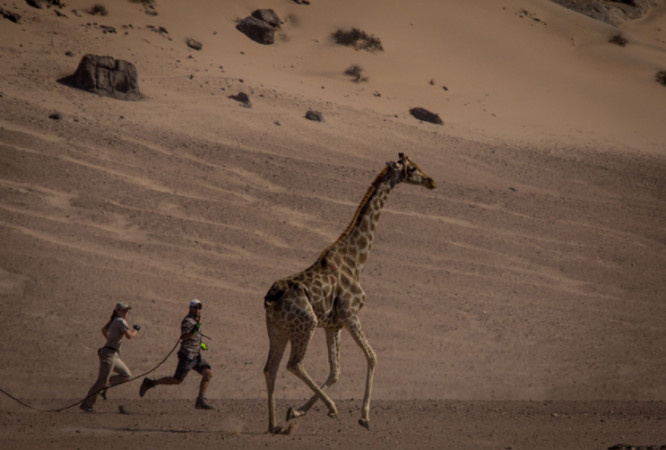
Giraffe Conservation Foundation
Giraffe Conservation
The southern African species of giraffe are not yet as threatened as the eastern and northern species which are highly endangered.
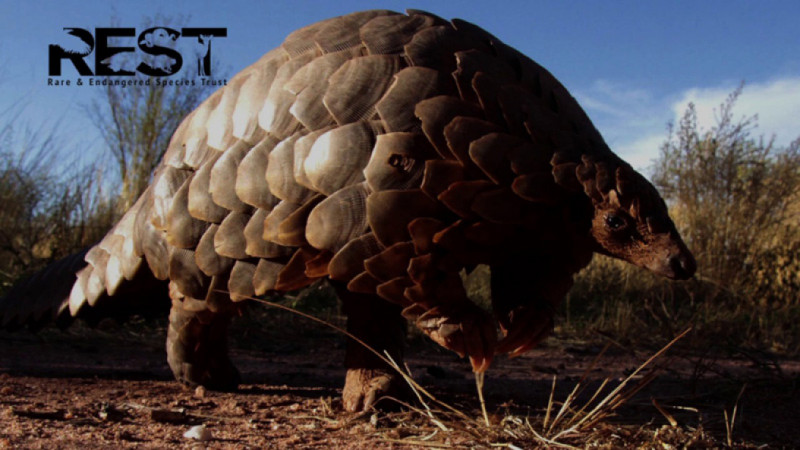
Rare and Endangered Species Trust (REST)
REST
EST is a Namibian Non-Profit Organisation that focuses its conservation efforts on six critically endangered species - namely, the African wild dog, the pangolin, the dwarf python, the spotted rubber frog, and the Cape Griffon vulture.
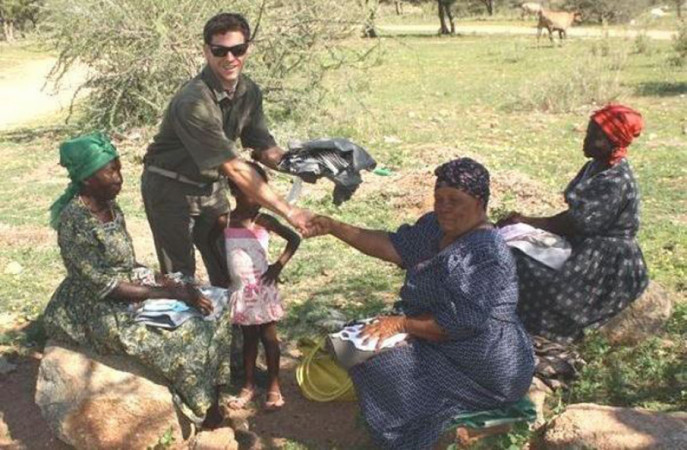
Justine's Laundry Service
Social Responsibility Investments
When Justine Gaingos, a longtime staff member of Ultimate Safaris, retired, The Conservation Travel Foundation donated her the machinery and house modifications to establish a laundry service in the suburb of Katutura.
